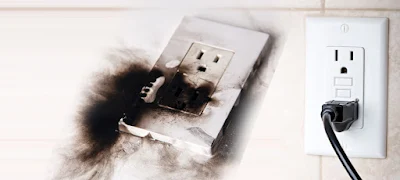Disclaimer: Electrical inspection can be dangerous. It is highly recommended to hire a professional electrician to perform a comprehensive inspection of the electrical systems in your new house. This article provides general guidance for informational purposes, but it does not substitute professional expertise and should not be considered a complete safety guide.
Safety first
When purchasing a new house, one of the critical areas to inspect is the electrical system. A properly functioning electrical system ensures your safety and comfort in your new home. While this article provides general tips for inspecting electrical systems, hiring a professional electrician is the safest option for a thorough evaluation.
1. Visual Inspection:
Start with a visual examination of the electrical system. Look for the following:
- Check for exposed wires or loose connections.
- Inspect the electrical panel for any signs of overheating or scorch marks.
- Verify that the panel cover is in place and secure.
While inspecting the electrical panel, if you notice any black or brown scorch marks on the breakers, it may indicate overheating, which can be a fire hazard.
2. Outlets and Switches:
Test the functionality of outlets and switches throughout the house:
- Check if outlets and switches are secure and not loose.
- Use a socket tester or plug in a device to ensure outlets are properly grounded and polarized.
If you find an outlet that doesn't work or shows signs of charring or sparking when you plug in a device, it may indicate a wiring problem that needs professional attention.
3. Lighting Fixtures:
Inspect all lighting fixtures, including ceiling fans and chandeliers:
- Ensure that bulbs are of the correct wattage as specified on the fixture.
- Check for flickering lights, which could indicate a loose connection.
Example:
If you notice flickering or dimming lights in a specific area, it might be due to issues with the circuit or a loose wire connection.
4. GFCI Outlets:
Identify Ground Fault Circuit Interrupter (GFCI) outlets, commonly found in kitchens and bathrooms:
- Press the "Test" and "Reset" buttons to ensure they function properly. The outlet should trip and reset when tested.
- Check if GFCI outlets are present in areas where they are required, such as near sinks or in outdoor locations.

If the GFCI outlet doesn't trip or reset as expected, it may not provide adequate protection against electrical shocks and should be replaced.
5. Circuit Breakers and Fuses:
Examine the electrical panel to identify the type of protection used:
- Modern houses typically use circuit breakers, while older houses might have fuses. Ensure they are properly labeled for easy identification.
- If you have fuses, make sure they are the correct amperage for the circuits they protect.
If you find fuses that are of higher amperage than the wiring can handle, it's a fire hazard, and they should be replaced with the correct size fuses or upgraded to a circuit breaker system.
6. Wiring and Outlets:
If you are comfortable doing so, you can check the wiring in the electrical outlets:
- Turn off the power to a specific outlet at the electrical panel.
- Remove the outlet cover and inspect the wiring. It should be neatly arranged with no loose or exposed wires.
Loose or frayed wires behind the outlet cover can cause short circuits and pose safety risks. Such issues should be repaired by a professional electrician.
Conclusion
While these tips can help you perform a basic visual inspection of the electrical systems in a new house, it's important to emphasize that electrical work can be dangerous. Hiring a licensed electrician to perform a comprehensive inspection is the best way to ensure the safety and reliability of your home's electrical system. They have the expertise and equipment to identify hidden problems that may not be visible during a visual inspection.
Remember, your safety is paramount, and investing in a professional electrical inspection is a small price to pay for peace of mind in your new home.




Comments
Post a Comment